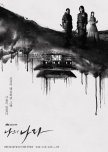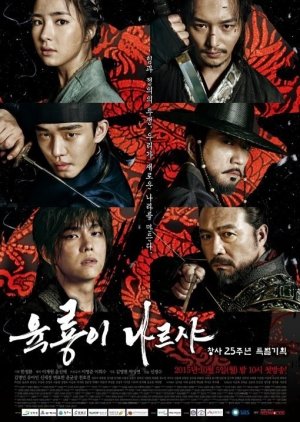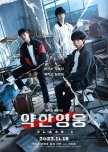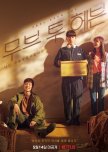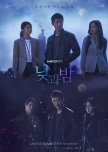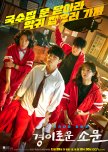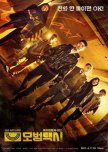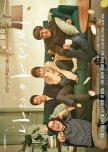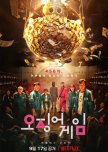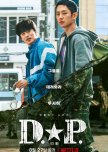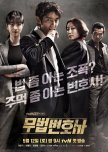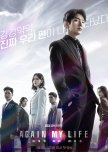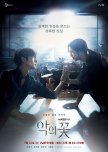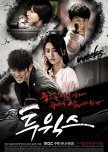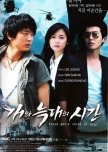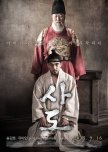
=> Both are high profile sageuk projects starring Yoo Ah In
=> Both were shown in 2015 (Six Flying Dragons ended in 2016)
=> Yoo Ah in won many awards for his portrayal in both sageuk projects
=> Yoo Ah In's role has a similarity in both dramas, he's someone who doesn't obey his father's wishes.
=> Because of the success of these two projects (along with Yoo Ah In's 2015 movie Veteran), 2015 was called "A-in-shi-dae" (Ah In era).
=> Both were shown in 2015 (Six Flying Dragons ended in 2016)
=> Yoo Ah in won many awards for his portrayal in both sageuk projects
=> Yoo Ah In's role has a similarity in both dramas, he's someone who doesn't obey his father's wishes.
=> Because of the success of these two projects (along with Yoo Ah In's 2015 movie Veteran), 2015 was called "A-in-shi-dae" (Ah In era).
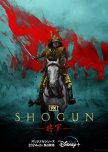
If you liked Shogun, you might also like Six Flying Dragons (SFD). Besides the obvious differences—one is a K-drama, the other an American production, and one has 50 episodes and the other 10—there are many similarities. Both are about the rise of authoritarian leaders. Like Shogun, SFD is very well written and acted out, and there is a mix of real-life and fictional characters.
However, the main difference is that SFD does not use any historical revisionism, neither character nor plot. Historical events are followed to the letter, both the glory and gore.
However, the main difference is that SFD does not use any historical revisionism, neither character nor plot. Historical events are followed to the letter, both the glory and gore.
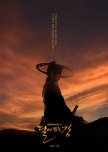
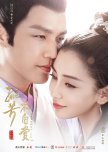
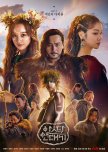
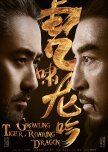
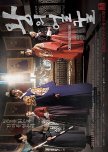
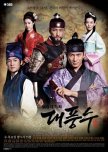
Both dramas tells the story of how General Yi Dan (Yi Seong Gye) became ruler of newly form country, Joseon. The Great Seer focus more on the changes that lead up to the origins of Joseon. The Six Flying Dragons focus on how General Yi Dan who is crowned King Taejo shaped and molded Joseon with the help of his son, Yi Bang Won and trusted friend, Jung Do Jeon.
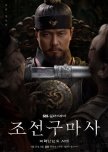


Both dramas include Lee Bang Won as one of the main characters. Thus, we know that the background story of both dramas is that they are both set in the early stages of Joseon Dynasty.
However, Six Flying Dragons has more focus on Lee Bang Won's rise to power while The Queen Who Crowns focuses more on the perspective of his Queen Minkyung and how she copes with being Queen (like dealing with her now unequal status with her husband to dealing with her jealousies to his concubines). There are also a lot of fictional characters added in Six Flying Dragons that are not present in real life nor in The Queen Who Crowns. plus Six Flying Dragons has a lot of martial arts scenes as well.
However, Six Flying Dragons has more focus on Lee Bang Won's rise to power while The Queen Who Crowns focuses more on the perspective of his Queen Minkyung and how she copes with being Queen (like dealing with her now unequal status with her husband to dealing with her jealousies to his concubines). There are also a lot of fictional characters added in Six Flying Dragons that are not present in real life nor in The Queen Who Crowns. plus Six Flying Dragons has a lot of martial arts scenes as well.
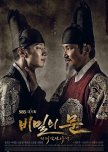
They both share similar plot lines. However, In six flying dragons there’s more scheming for the throne and it’s before joseon was established. I think of secret door as a continuation as it is 21kings in, so it’s more about how they can continue to help the commonners and the lower-class of society whilst dealing with opposition from the nobility. They are both great political dramas for me anyways.
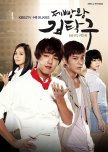
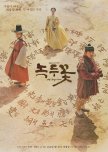
Both historical dramas have...
> characters participating in political battles against the current regime/government.
> a group of people wanting to change their country partly to help people out of their poverty.
> characters entering the path of darkness to gain more power for themselves and their families.
> traditional Korean OST.
> lots of action/battles etc.
> romantic relationships, which sometimes get in the way of/or even fuel the characters ambitions.
> amazing quotes about politics, philosophy, war etc.
> the same director, also many of the same supporting actors.
If you loved one, you're up for an exciting ride with the other!
> characters participating in political battles against the current regime/government.
> a group of people wanting to change their country partly to help people out of their poverty.
> characters entering the path of darkness to gain more power for themselves and their families.
> traditional Korean OST.
> lots of action/battles etc.
> romantic relationships, which sometimes get in the way of/or even fuel the characters ambitions.
> amazing quotes about politics, philosophy, war etc.
> the same director, also many of the same supporting actors.
If you loved one, you're up for an exciting ride with the other!
